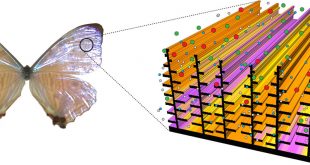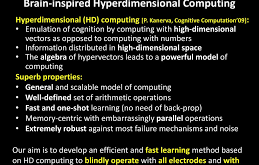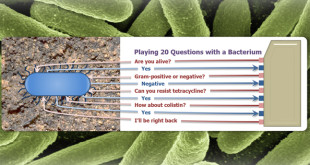Electronic computers are extremely powerful at performing a high number of operations sequentially at very high speeds. However, they struggle with combinatorial tasks that can be solved faster if many operations are performed in parallel for example in cryptography and mathematical optimisation, which require the computer to test a large …
Read More »Bio-Inspired or Biomimetic Photonics create highly selective Gas sensors and Artificial Eye like insects
Researchers have looked into nature for inspiration, understanding the mechanisms animals, insects and plants use to capture and process light and then designing next generation optoelectronics devices and systems like light-emitting diodes (LEDs), sensors and materials. Biomimicry has led to the development of several naturally inspired structures, such as curved …
Read More »DARPA’s thrust on Bio-Inspired Photonics
Nature provides many examples of optical structures whose properties arise from an intricate morphology. The brilliant colors seen in butterfly wings, beetle carapaces, and peacock feathers, for example, are due in large part to their complex structure, says DARPA. These hierarchical structures, scaling from micron to nanometer level, achieve remarkable …
Read More »Synthetic biology roadmap to set research agenda for next 10 years, published by EBRS
Synthetic biology is the application of science, technology and engineering to facilitate and accelerate the design, manufacture and/or modification of genetic materials in living organisms, as defined by the European Commission. It envisions the redesign of natural biological systems for greater efficiency, as well as create new organisms as well as …
Read More »Defence and Security require advanced authentication techniques including high speed, and accurate biometric identification
As attack vectors increase with the burgeoning of the Internet of Things (IoT), the Defense sector is exposed to different risks that require increasingly advanced authentication techniques. Today’s threat players are using more sophisticated social engineering tactics, credential-stuffing botnets, and account takeover tactics to pull off all sorts of attacks. …
Read More »DARPA ElectRx developed automatic Self-Healing of Body by stimulating nerves by light, electricity, sound and magnets
Service members are subject to extreme physical injury and mental stress. Wounded soldiers often experience substantial pain, which must be addressed before returning to active duty or civilian life. Pain represents a serious and widespread problem both over the short term for wounded soldiers on the battlefield and during rehabilitation, …
Read More »Brain inspired Hyperdimensional computing for extremely robust brain-computer interfaces, biosignal processing and robotics
From an engineering perspective, computing is the systematized and mechanized manipulation of patterns. A representation is a pattern in some physical medium, for example, the configuration of ONs and OFFs on a set of switches. The algorithm then tells us how to change these patterns—how to set the switches from …
Read More »Biological Technologies Office of DARPA seeking R&D Concepts to harness the power of Biological systems for national security
The Defense Advanced Research Projects Agency’s Biological Technologies Office is seeking research-and-development concepts to help address Department of Defense requirements and other national security requirements. A FedBizOpps notice posted in April 2019 stated that BTO’s R&D scope covers a range of science and technology subject matters such as medicine, bioengineering, human-machine …
Read More »DARPA’s Friend or Foe to quickly identify both naturally occurring and adversary engineered bio-threats (pathogens) for force protection
Bacteria underpin much of our world, acting behind the scenes to affect the health and behavior of animals and plants. They help produce food, provide oxygen, and even reshape the environment through a vast array of biological processes. They come in a phenomenal number of strains—many still unknown—and thrive in …
Read More »Biological Synthesis of Metallic Nanoparticles by Bacteria, Fungi and Plants can be utilized for electromagnetic pulse protection, according to US Army
Nanoparticles have unique thermal, optical, physical, chemical, magnetic and electrical properties compared to their bulk material counterparts. These features can be exploited for next generation biosensors, electronics, catalysts and antimicrobials. Metallic nanoparticles are one important and widely studied group of materials, showing great diversity and many different uses Over …
Read More » International Defense Security & Technology Your trusted Source for News, Research and Analysis
International Defense Security & Technology Your trusted Source for News, Research and Analysis









